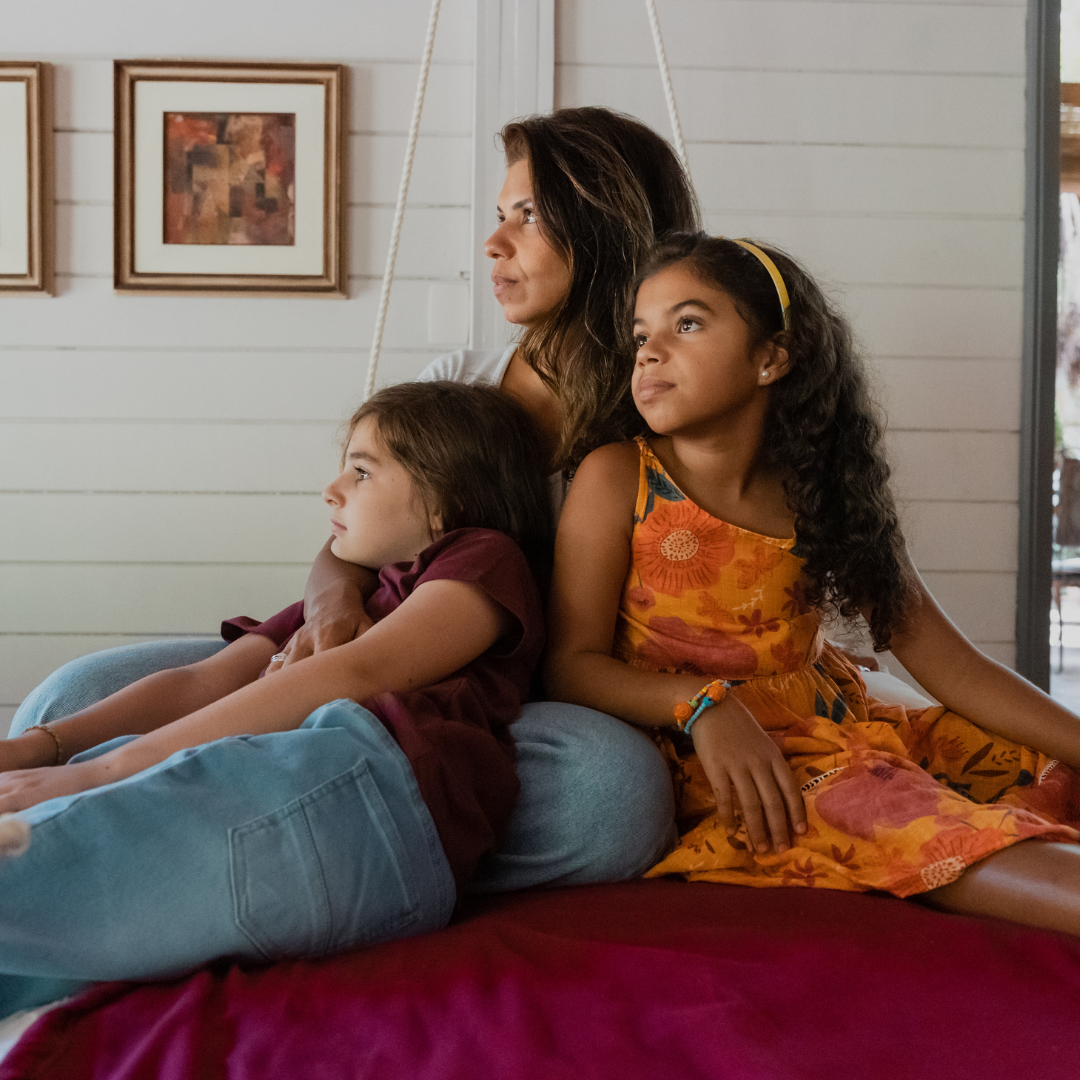How to Support Grieving Children & Teens After a Death

When a death occurs, it can be hard to know how to help children cope with heartache, especially when you are working through your own grief. Our grief care specialists offer these suggestions on how to comfort and support grieving children and teens as they encounter difficult and confusing feelings.
Grief is a natural, normal, and necessary response to death. Children and teens face the same jumble of confusing emotions as adults but mourn differently. One moment a child may seem completely unaffected, but the next, they may be inconsolable. This is completely normal. Unlike grown-ups, children and teens often don’t have the words to express their feelings, so it shows up in their moods, play, and behavior. Even if they seem fine on the outside, on the inside, they may be struggling with feelings that they don’t know how to express.
LISTEN WITH YOUR HEART
It is normal to be nervous when talking with a child about grief or death. Sometimes it is hard to know what to say or how to answer questions. Providing children and teens a chance to express themselves helps normalize their feelings and gain a sense of connectedness in their grief. Here are some ways you can support them with kindness and compassion:
- Simply be there
- Silence is okay
- Listen without judgment
- Model healthy ways to express emotions
- Validate their feelings and don’t try to correct or fix them
- Offer opportunities to express emotions
TELL THE TRUTH AND HELP THEM UNDERSTAND
Sometimes children and teens overhear adult conversations and may develop their own imaginative or scary interpretations of what happened. It is often hard for children to understand the circumstances as well as the permanence of death.
How much you share depends on the child’s age and their questions. Understand that you may not have the answers to some questions and that responding to questions with “I don’t know” is okay. Through careful listening, you will learn exactly what the child needs to know – nothing more, nothing less. Avoid phrases such as, “passed on”, “lost”, or “taken from us”; though these may be easier to say, they can cause more confusion or fear. Simple and clear words such as death, dying, and dead are best.
KNOW THAT GRIEF WILL CONTINUE TO BE A PART OF THEIR LIFE
Children do know “get over” or recover from a death, but instead find new ways to cope and live with that loss. As they get older and progress through life, feelings of grief can resurface unexpectedly. Over time, the pain will lessen, but that loss will continue to be mourned.
HEALTHY BEHAVIORS AFTER A DEATH
The following reactions are considered typical by grieving experts but may be a clue that the child needs more comfort, care, or consideration:
Physical changes: Children may experience changes in sleeping, appetite, or increased stomach or headaches
Emotional changes: Children may feel a wide range of emotions all at the same time, or they may feel nothing at all.
Changes in behavior: Developmental regression, poor school performance, need for isolation, and increased anger toward family and peers is common.
Changes in play: Play is used as a coping mechanism for children and allows them to process through their experience. Sometimes spending time with friends may help them feel more normal. Children also may want to be left alone, or they may want to look for new, more accepting friends.
Changes in thinking: Children may have constant thoughts and memories about the person and become overprotective of you or others. They may be worried or have a hard time making decisions.
Magical thinking: Children may believe that the death can be reversed, that the person can come back, or that it might be their fault that the death occurred.
If you want help talking with your child or teen, please call our Grief Care Line at 800.958.5014. And if you or your family need additional grief support resources, visit our Patient and Family Resources page.
![Community Healthcare of Texas [logo]](https://www.chot.org/wp-content/themes/community-healthcare-of-texas-2019/images/logo.png)




